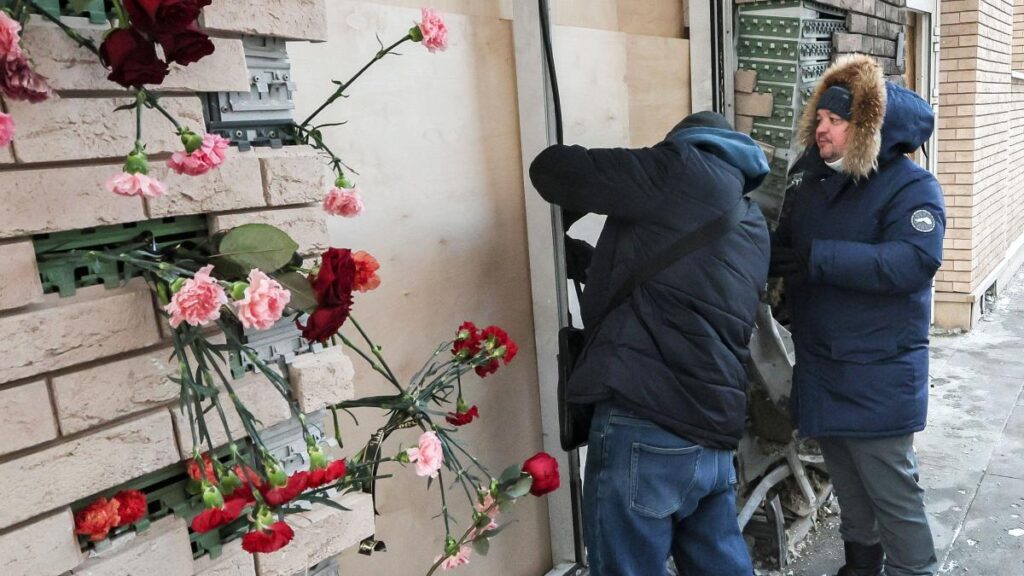On a tense day in Moscow, the Russian security service announced the detention of a 29-year-old man from Uzbekistan, implicated in the assassination of Lieutenant General Igor Kirillov, the commander of Russia’s Radiation, Chemical, and Biological Protection Forces. Kirillov, known for his pivotal role in Russia’s chemical weapons program, was killed in a remote detonation of an explosive device concealed in a scooter outside his residential building. This shocking incident, which took place early on Tuesday, has escalated existing tensions between Russia and Ukraine, particularly as Ukraine’s intelligence services acknowledged their involvement in Kirillov’s assassination. They framed Kirillov as a legitimate target due to his alleged war crimes, following Ukraine’s classification of him as responsible for the mass deployment of prohibited chemical agents during the ongoing conflict.
The Russian Federal Security Service (FSB) stated that the captured man had links to Ukrainian intelligence, claiming he was recruited for the terrorist act. Reports indicated that days prior to the assassination, Ukraine had formally charged Kirillov with war crimes, asserting that he was responsible for the mass use of banned chemical weapons. This legal maneuver has heightened the stakes in their ongoing conflict, with Ukraine accusing Kirillov of leading military operations that resulted in significant human rights abuses. In the aftermath of his death, Russian President Vladimir Putin expressed deep condolences, highlighting the sensitive nature of the situation as a high-ranking military official was lost amid the backdrop of ongoing hostilities with Ukraine.
The circumstances of the attack reveal a meticulous and premeditated operation orchestrated by the suspect, who was reportedly lured by a financial incentive of $100,000 along with the promise of relocation to the European Union. The FSB claimed that, under Ukrainian instructions, the suspect had traveled to Moscow, where he was supplied with a homemade explosive device. He strategically placed the bomb on an electric scooter positioned at the entrance of Kirillov’s residence. Furthermore, he used a rented vehicle to surveil Kirillov’s movements, installing a camera to stream live video to operatives located in Dnipro, Ukraine. This sophisticated execution underscores the growing intensity and complexity of the espionage and assassination tactics being employed in the Russia-Ukraine conflict.
In the immediate aftermath of the explosion, the scene was chaotic; images from outside Kirillov’s apartment depicted severe damage, with windows shattered and burn marks marring the building’s facade. The investigation into the site revealed that two bodies were discovered in the vicinity, illustrating the brutality and collateral damage associated with such targeted attacks. The assassination is notably significant as it marks one of the highest-profile killings of a Russian military figure since the invasion of Ukraine began nearly three years ago. The implications of such a bold act also extend into international relations, as the Russian government vowed to hold those responsible accountable, hinting at potential repercussions against Ukraine for what they classify as a terrorist act.
Moreover, the incident has sparked a renewed commitment from Moscow to address the dynamics at play in the conflict, with Russian officials announcing plans to raise Kirillov’s assassination at the United Nations Security Council. This escalation highlights the gravity with which Russia views the assassination of one of its senior military leaders. The international arena’s response to these developments could further complicate the relationship between Russia and the West, especially given that the ongoing war has already placed severe strains on diplomatic ties globally. Additionally, the Russian government remains steadfast in its assertions that it has abided by international chemical weapons agreements, an assertion that has faced severe challenges from Ukraine and its allies.
As the aftermath of the assassination unfolds, the FSB’s interrogation of the detained suspect is expected to reveal more about the logistics and financing behind the killing, as well as any broader conspiracies that may be linked to Ukraine. The unfolding narrative emphasizes the complexity of the conflict, involving not just battlefield engagements but also urban warfare that includes targeted killings and intelligence operations. Russia’s ongoing narrative of victimhood in the context of the war will likely be fortified by this incident, as they seek to bolster public sentiment against perceived Ukrainian aggression. Meanwhile, the Ukrainian government may continue to assert its position of accountability and justification in pursuing high-ranking Russian officials implicated in war crimes.
In conclusion, the striking assassination of Lieutenant General Igor Kirillov marks a critical juncture in the ongoing conflict between Russia and Ukraine, encapsulating both the intensity of military operations and the intricate web of espionage that has characterized their rivalry. This incident not only reinforces the deep divisions between the two countries but also highlights the increased reliance on targeted assassinations as a tactic within the broader scope of modern warfare. As both nations prepare for the ensuing diplomatic fallout, the implications of this act extend beyond mere retaliation, suggesting a further entrenchment in the conflict that is poised to have long-lasting ramifications for both regional stability and international relations.

